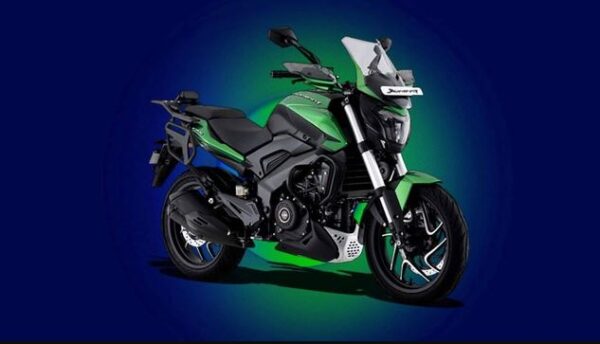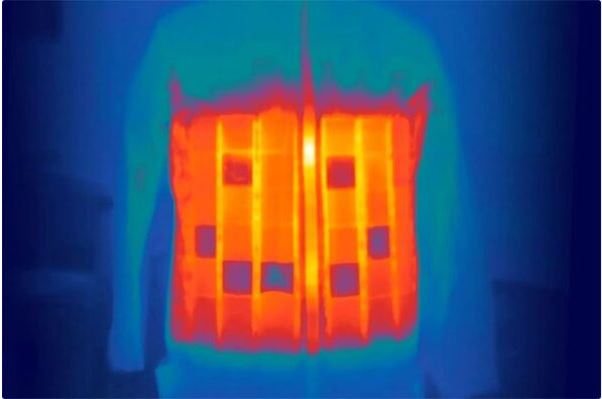Motorcycles running on CNG (Compressed Natural Gas) are motorbikes that use compressed natural gas as fuel instead of traditional gasoline. Natural gas is compressed at high pressure and stored in a vehicle-mounted tank.
Over the years, we have seen a number of proposed alternatives to gasoline as fuel for motorbikes – including steam, hydrogen, water and batteries. Now, a motorbike manufacturer is preparing to launch what is billed as the world’s first CNG motorbike.
CNG stands for compressed natural gas, as its name suggests, this type of energy is “generated by compressing natural gas to less than 1% of its volume at standard atmospheric pressure”. It can be used as a fuel source for internal combustion engines, where a cylindrical tank supplies gas through a fuel line via a pressure regulator before reaching the combustion chamber to mix with air and burn. by spark plug.
Motorcycles running on CNG (Compressed Natural Gas) are motorbikes that use compressed natural gas as fuel instead of gasoline. Natural gas is a fossil fuel that is cleaner and more efficient than gasoline, and it also pollutes the environment less.
Like LPG – liquefied natural gas – it is often seen as a cleaner and cheaper alternative to petrol and diesel and can be installed on buses, trucks and even cars and motorbikes. cake. While CNG converters have been available globally for a while now, the upcoming CNG motorcycle by Indian brand Bajaj Auto is said to be the world’s first production model.
Prototyping has been underway since at least last year, when the company’s chief executive officer, Rajiv Bajaj, told CNBC-TV18 in a November 2023 interview that they had recorded “amounts of carbon monoxide is reduced by 75%” with the CNG prototype compared to a gasoline engine, while also recording “almost zero” CO2 emissions and non-methane hydrocarbon emissions.
With the development of natural gas filling station infrastructure and technological improvements, CNG motorbikes have the potential to become a popular alternative to gasoline motorbikes in the future.
He also said that future owners of this model can “reduce fuel costs by 50 to 65%. So there appear to be solid environmental and cost-saving benefits to such a motorcycle being launched, and Bajaj Auto’s home turf – India – is perhaps the best production testbed in the world. now – where the overall motorcycle market is predicted to be worth around $31 billion this year.
At the time of CNBC-TV18’s interview, the company said that the model’s launch would be in 2025, but it appears that timeline has now been revised, with the Times of India now reporting the information. reported on June 18.
Prototypes tested on the road appear to have started out operating like regular models before being modified to use the new fuel source – the car was camouflaged with an unusually large fuel tank in March , is said to be running benchmark tests alongside the Bajaj Platina 110 model.
According to information from Newatlas, this model will have a 125cc powertrain and dual fuel setup, as well as some potential specifications such as 17-inch wheels wrapped in 80/100 tubeless tires, a dashboard semi-digital, telescopic fork and rear monoshock, and LED headlight.
CNG-powered motorbikes have a number of advantages over gasoline-powered motorbikes, including:
More environmentally friendly: Natural gas produces fewer emissions than gasoline, including greenhouse gases like carbon dioxide. This means that CNG-powered motorbikes can help reduce air pollution and climate change.
More efficient: Natural gas contains more energy than gasoline per unit volume. This means that CNG-powered motorbikes can go farther on the same amount of fuel than gasoline-powered motorbikes.
Cost savings: Natural gas is often cheaper than gasoline. This means you can save money when operating a CNG-powered motorbike.
However, CNG-powered motorbikes also have some disadvantages, including:
Limited infrastructure: Natural gas filling stations are not as popular as gas stations, which can make it difficult to refuel CNG motorbikes.
Higher price: CNG motorbikes usually cost more than gasoline motorbikes.
Heavy gas tanks: Natural gas tanks can be heavy and bulky, affecting the weight and handling of the vehicle.
Shorter operating range: CNG motorbikes often have a shorter operating range than gasoline motorbikes due to limited gas tank capacity.
Overall, CNG-powered motorbikes are an environmentally friendly and cost-effective alternative to gasoline-powered motorbikes. CNG motorbikes are expected to be a popular means of transport in the future. However, to develop strongly, CNG motorbikes need investment in developing CNG filling station infrastructure and reducing vehicle costs.











